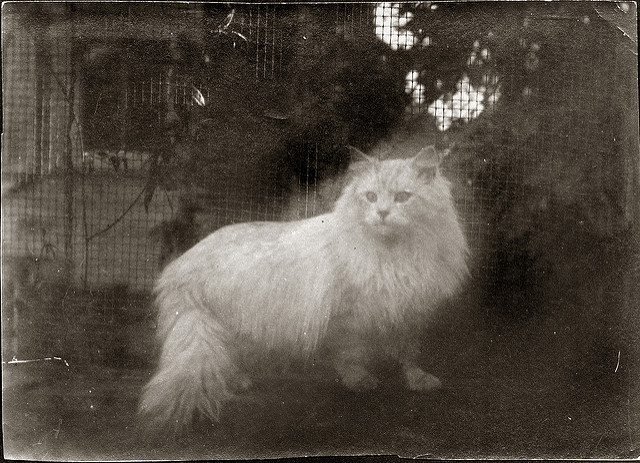- 3-minute read
- 6th April 2017
MLA Referencing – Citing an Ebook
MLA referencing can seem confusing at first, especially with the updates introduced in the eighth edition of the MLA Handbook. And referencing an ebook can be doubly baffling. So to clear things up, we’re going to explain the basics of how to cite an ebook in an essay.
In-Text Citations
Citing an ebook is the easy bit, since this uses the same rules as citing any other source. To be specific, you need to give the author’s surname and a page number in parentheses:
Compared to other spirits, ghost cats are kind and well-meaning (Cox 146).

(Photo: anyjazz65/flickr)
If the author is named in the text, the page numbers are usually given in parentheses at the end of the sentence:
Cox says that it is better to ‘subtly patronise’ a cocky kitten than to mock it openly (155).
If you’re citing an ebook that has section or paragraph numbers instead of page numbers, you should use these in citations. If no numbering system is given, MLA does not require a pinpoint citation, but you might want to specify a chapter title for clarity:
Kittens can be led astray due to peer pressure (Cox ‘Advice for New Kitten Owners’).
Works Cited: Books Accessed via an e-Reader
In the ‘Works Cited’ list, ebooks accessed via an e-reader are treated as specific editions of a book. As such, you should provide the edition details (i.e. the format it was published in) after the title:
Surname, First Name(s). Title. Edition. Publisher, year.
Find this useful?
Subscribe to our newsletter and get writing tips from our editors straight to your inbox.
Subscribe to Beyond the Margins and get your monthly fix of editorial strategy, workflow tips, and real-world examples from content leaders.
The Kindle edition of the book cited above, for example, would be listed as:
Cox, Tom. The Good, The Bad & The Furry: Life with the World’s Most Melancholy Cat and Other Whiskery Friends. Kindle ed. Sphere, 2013.
If the book wasn’t downloaded for a specific device, it can be cited as a generic ‘ebook’.

Works Cited: Books Accessed Online
Some books are available online. These aren’t technically ebooks, but you might still need to cite them in your work. If so, they should be listed with details of where they were found online, including a database (if applicable) and a DOI/URL:
Surname, First Name(s). Title. Publisher, year. Database, DOI/URL.
A date of access is not compulsory, but you may want to include one anyway (especially if your style guide suggests doing so). In practice, this would look something like this:
Ross, Charles H. The Book of Cats: A Chit-chat Chronicle of Feline Facts and Fancies, Legendary, Lyrical, Medical, Mirthful and Miscellaneous. Griffith & Farran, 1868. Project Gutenberg, www.gutenberg.org/files/43790/43790-h/43790-h.htm. Accessed 28 Feb. 2017.




